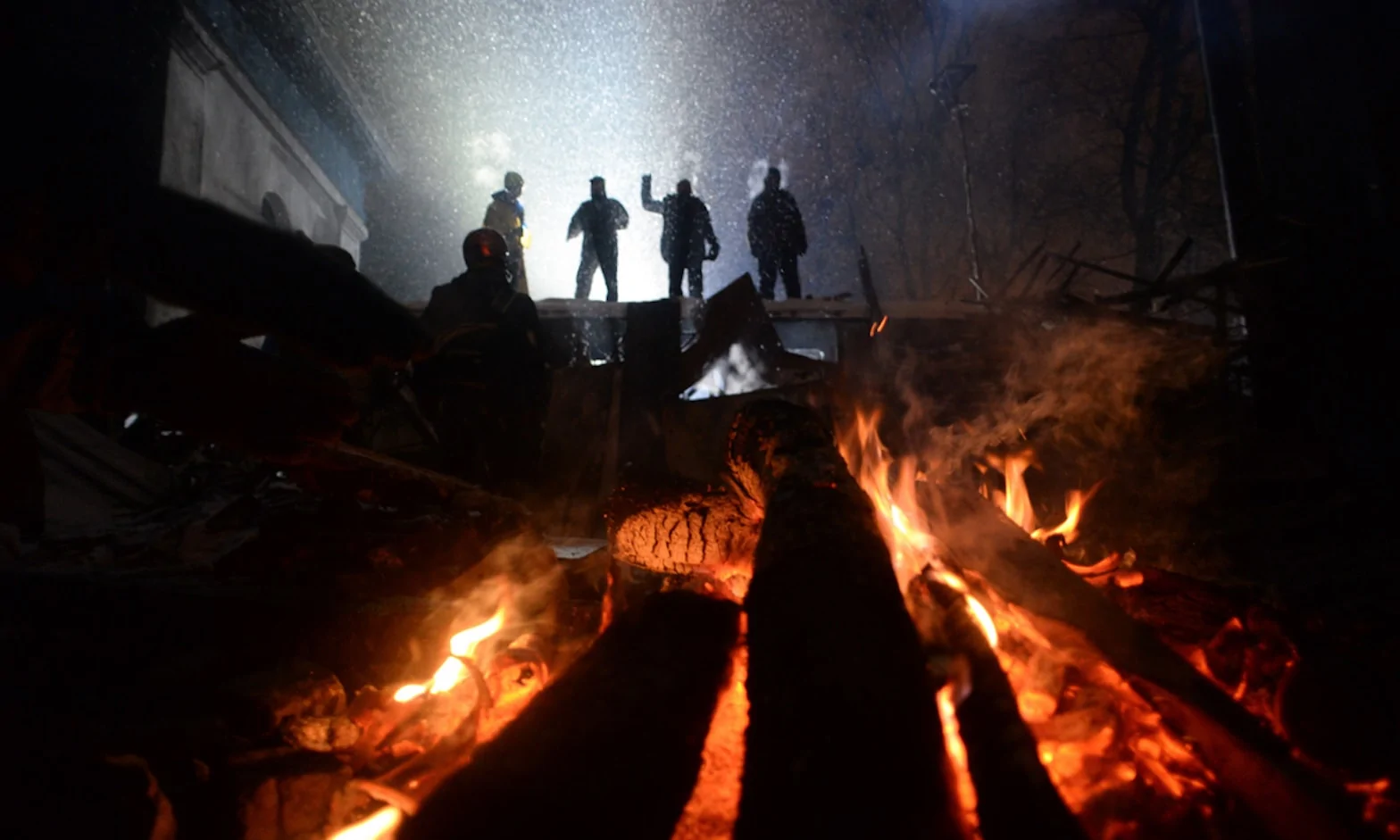Since August 19 2014 and the broadcast of American James Foley murder at the hands of the Islamic State (Ackerman, 20 August 2014, The Guardian), Western media regularly feature grim videos where the Islamic State beheads individuals belonging to the groups it perceives as enemies and opposing its Caliphate. The gruesome, ghastly and shocking character of the videos and of …
Tag Archives: Open Access
The Red (Team) Analysis Weekly 176 – Europe Unexpected Power Waiting to be Used
Each week our scan collects weak – and less weak – signals… We present below the most interesting or relevant features for each section. World (all matters related to war, international and national security) – This week, we can point out, besides many other signals and articles, a must read article on “Putin’s Great Gamble” by Pr Nikolas K. Gvosdev, …
Continue reading “The Red (Team) Analysis Weekly 176 – Europe Unexpected Power Waiting to be Used”
Potential Futures for Libya Series – Features of a War
The fall of Muammar Gaddafi and his revolutionary regime in 2011 has ushered in an era of factional violence between city militias, military units, and Islamic and nationalist brigades. According to LibyaBodyCount.org (see detailed bibliographic reference below), 1,741 Libyans have been killed in violent clashes or assassinations from January to September 2014 alone. Although the site’s body …
Continue reading “Potential Futures for Libya Series – Features of a War”
Monitoring the War against the Islamic State or against a Terrorist Group?
The war in Syria has now become fully internationalized, after its expected regionalization, notably favoured by the failure to stabilize Iraq after its state was destroyed by the 2003 US-led Iraq war. The two, initially unrelated wars have morphed into a war against one of the fighting actors on the Syrian battlefield, the Islamic State, originally born from the Iraqi …
Continue reading “Monitoring the War against the Islamic State or against a Terrorist Group?”
The Red (Team) Analysis Weekly 159 – An Accelerating U.S. Decline?
Editorial – Horizon scanning for national and international security – What appears as most amazing this week is a perception of an accelerating American decline on the world stage. A few months ago, we warned that changes related to the dollar supremacy were in the making, even if they would, most probably, need a relatively long time before …
Continue reading “The Red (Team) Analysis Weekly 159 – An Accelerating U.S. Decline?”
The Red (Team) Analysis Weekly 158 – Gilman’s Plutocratic Criminal Insurgency and War
Editorial – Gilman’s Plutocratic Criminal Insurgency and Current Wars – We have been monitoring and analyzing how the current paradigm is shifting, while wondering what could be the future of political authorities, both elements being absolutely crucial if we are to provide pertinent strategic foresight and warning analyses. In this framework, the article by Nils Gilman, associate chancellor at …
The Red (Team) Analysis Weekly 153 – The Paradox of Change?
Editorial – The paradox of change? Reading through the multiple crowd-sourced articles of the Weekly, what stands out is a perception of an acceleration of change. In itself, each flashpoint or problem is not new, and has been either underlined or monitored for months and even for years for some of them. Yet, when we look at all of them …
Continue reading “The Red (Team) Analysis Weekly 153 – The Paradox of Change?”
Conflict in Ukraine – Setting the Stage
The crisis in Ukraine started on 21 November 2013 with the Euromaidan protests in Kiev. Six months later, it is threatening to become a full-blown civil war with severe global impacts, unless the situation is stabilised. As for any conflict it is important to assess possible futures and impacts at all levels. Image: Mstyslav Chernov/Unframe – CC BY-SA 3.0This article starts a series on the conflict in Ukraine, which aims at providing the most possible useful analysis of the situation. As we did with Syria, the series will focus on the states of play for the actors and the situation on the ground, a necessary foundation for any proper strategic foresight and warning regarding the conflict.After outlining our analytical framework to overcome the difficulties related to propaganda, we shall define and …
Continue reading “Conflict in Ukraine – Setting the Stage”
The Red (Team) Analysis Weekly 144, Geopolitics also matters for businesses
Editorial – Geopolitics also matters for businesses – Among the big changes that the “Ukraine and Crimea crisis” are bringing or catalyzing, we may be seeing the end of the hegemonic belief that economics, and “business” only matter. Now that the E.U., its European members and the U.S. could be moving towards sanctions against Russia …
Continue reading “The Red (Team) Analysis Weekly 144, Geopolitics also matters for businesses”
Towards an Operational Methodology to Analyze Future Security Threats and Political Risk (1)
In this day and age of speed, not to say haste, unequally shared resources and wish to relatively easily obtain answers to complex questions, we are faced in strategic foresight and warning analysis (or political risk analysis) with a very serious challenge. We must choose a methodology that: allows for a “good enough” analysis (Fein, 1994), …











